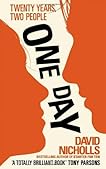Three very different books have helped me get through a month so hot that staying inside and not moving very much is the only way to survive. (Of course, for those of us who spend our lives reading, that's not exactly a punishment.)
Lionel Shriver's
So Much for That is the kind of sobering fiction that a) makes your life look idyllic by comparison, and b) reminds you that it probably won't stay that way for long. The particular hell in this novel is illness ("aided" by the American health system) and the many kinds of havoc it can wreak as even the healthy become victims. Fifty-year-old self-made millionaire Shep Knacker is about to realize his lifelong dream of retiring to an edenic beach in a remote country where a dollar a day will buy perfect happiness when his wife finds she has a cancer that will probably be terminal. The dream of paradise recedes further and further into impossibility as Shep's resources, both personal and financial, are drained to care for Glynis, an unproductive artist who is so cold she sometimes seems to deserve her awful fate. If this isn't depressing enough, there's a side story of Shep's friend Jackson caught in his own horrific tailspin. I'll spare you the details of that one.
Why did I keep turning the pages? In brief: a compelling main character and some amazing writing, including extended conversations that bring characters to life so fully that they seem to be in the room with you as they fight, bravely or stupidly, the particular brand of slings and arrows life has tossed at them. We're privy to lots of details about chemotherapy and its side effects and lots of decreasing dollar figures showing how quickly illness can not only kill you but rob you of everything you have--don't we all need to know about these things so we can be ready to deal with them ourselves? After all that, if you haven't passed out from the drinks you'll need to get to it, there's a surprisingly satisfying ending.
So Much for That is no beach read, but after a hiatus, I do want to read more of Shriver's work. She's that good a writer.
So what did I pick up next? A TRUE story of horrific tragedy--Tracy Kidder's
Strength in What Remains, the story of Deogratias, a Burundian refugee who escaped the sudden genocide that swept through his country in the early 90s, when he was in medical school. Kidder manages to let us see enough of the horror Deo somehow lived through to break our hearts without totally turning our stomachs. After six months of flight and refugee camps, Deo managed to get to America, where his life was in many ways worse, if less violent. While he learns English Deo endures months of poverty and exploitation, working twelve-hour days for five dollars, sleeping in squalid abandoned tenements before settling in Central Park, living off his wits and his desperation. Deo himself is inspiring, but so are the Americas who grab hold of him and won't let go: an ex-nun determined to find him a home; the retired couple who take him in and put him through Columbia; Paul Farmer, the founder of the international health and social justice organization Partners In Health, who gives Deo a way to fight against poverty and disease in his own country. (Farmer is the subject Kidder's earlier book
Mountains Beyond Mountains.) This one's well worth reading. Just take a deep breath first.
So I needed something light, right? A full-page ad in
The New York Times raved about Aimee Bender's
The Particular Sadness of Lemon Cake. Sounded intriguing and easy. I mean, how sad could lemon cake be? The premise is original and thought-provoking: nine-year-old Rose suddenly realizes that she can taste the feelings of the people who made the food she eats--especially her mother, who does not know that her secret emotions burden her daughter. Eventually Rose confides in her brother, a strange, aloof nerd with, it turns out, some secret skills of his own. It's a loving but weird family: "My father was a fairly focused man, a smart one with a core of simplicity who had ended up with three highly complicated people sharing the household with him: a wife who seemed raw with loneliness, a son whose gaze was so unsettling people had to shove cereal boxes at him to get a break, and a daughter who couldn't even eat a regular school lunch without having to take a fifteen-minute walk to recover. Who were these people?"
Rose struggles to live with her power and the knowledge it brings her while navigating the always-turbulent waters of adolescence.
Lemon Cake feels part normal-teen-girl-finds-herself, part mythical tale sprinkled with magic realism, and part science fiction that strains credulity. The parts don't always feel right together, but Rose is a memorable character and Bender is a lovely writer who has captured the complexity and fragility of family. I can't give this book an A, but I'll read her next one.


